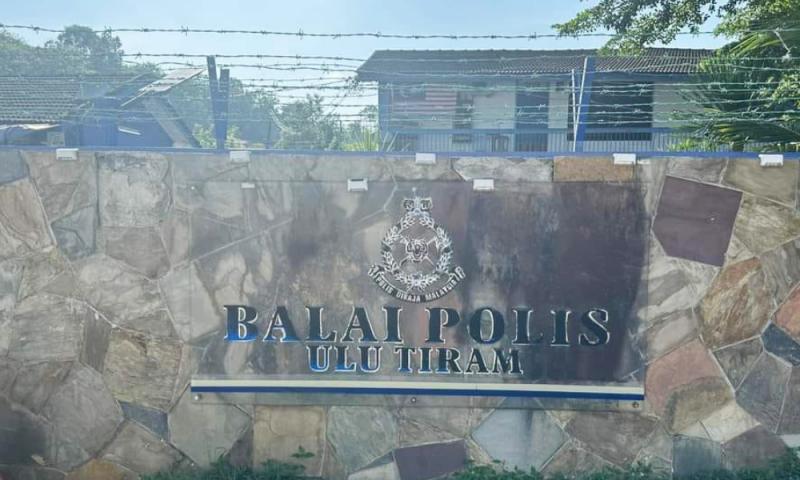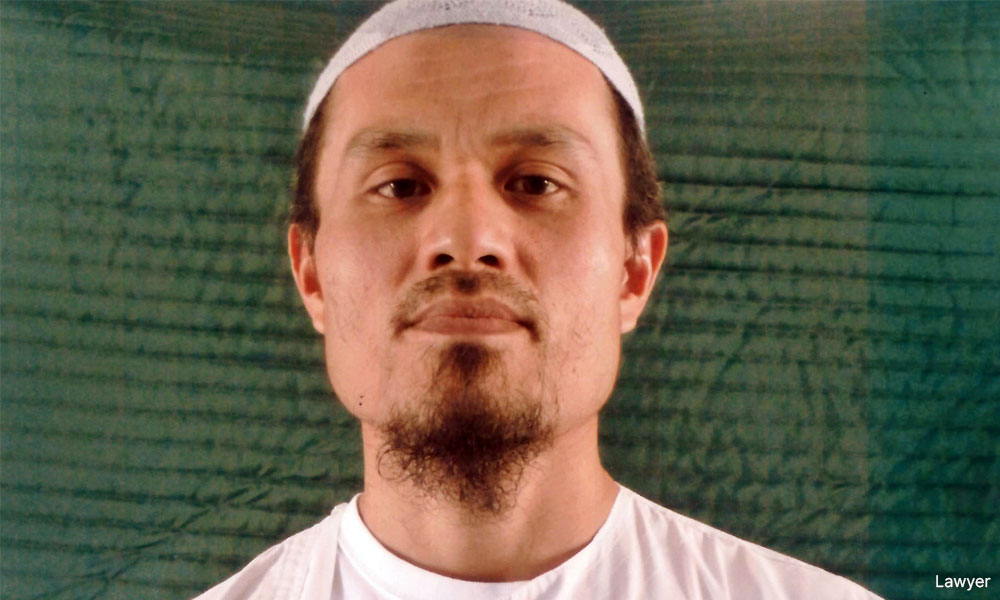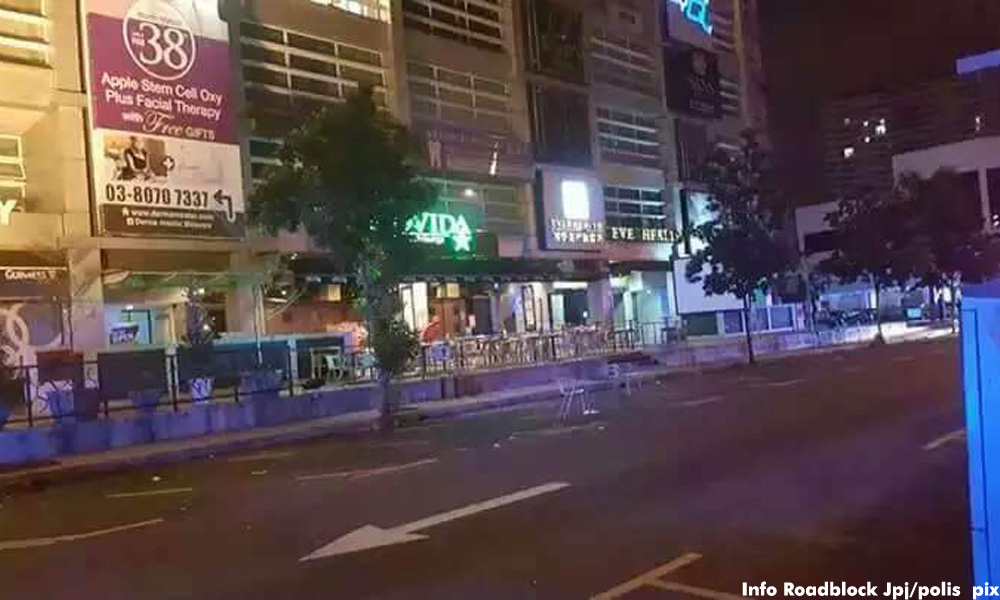
KINIGUIDE
Ulu Tiram terror attack - Jemaah Islamiyah in Malaysia
Updated: May 18, 2024 12:05 AM
KINIGUIDE | A pre-dawn attack on the Ulu Tiram police station in Johor by a 22-year-old suspect believed to be linked to Jemaah Islamiyah (JI) has raised fresh questions over the existence of the banned terrorist group in Malaysia.
The suspect killed two police officers and injured another officer before he was shot dead.
Inspector-General of Police Razarudin Husain has confirmed the arrests of two students, who went to the station shortly before the 2.45am incident, and five of the suspect’s family members.
This KiniGuide looks into a brief history of JI and its existence in Malaysia.
What is Jemaah Islamiyah?
JI is an Al-Qaeda-affiliated regional terror organisation founded in Indonesia which made its way to Malaysia in the mid-1990s through the setting up of local religious schools, or sekolah pondok.
It envisions the founding of an Islamic state, Daulah Islamiyah Nusantara, which would include Malaysia, Indonesia, southern Thailand, and southern Philippines.
The hardline movement has been banned in Malaysia, Indonesia, and Singapore.
Who are the founders?
Abu Bakar Bashir and Abdullah Sungkar co-founded JI in 1993, with roots in the Pondok Ngruki schooling network since 1971.
The duo founded JI from an ideological conflict within an older Indonesian Islamic State movement led by Ajengan Masduki.
Abdullah died in 1999 at the age of 62.
Updated: May 18, 2024 12:05 AM
KINIGUIDE | A pre-dawn attack on the Ulu Tiram police station in Johor by a 22-year-old suspect believed to be linked to Jemaah Islamiyah (JI) has raised fresh questions over the existence of the banned terrorist group in Malaysia.
The suspect killed two police officers and injured another officer before he was shot dead.
Inspector-General of Police Razarudin Husain has confirmed the arrests of two students, who went to the station shortly before the 2.45am incident, and five of the suspect’s family members.
This KiniGuide looks into a brief history of JI and its existence in Malaysia.
What is Jemaah Islamiyah?
JI is an Al-Qaeda-affiliated regional terror organisation founded in Indonesia which made its way to Malaysia in the mid-1990s through the setting up of local religious schools, or sekolah pondok.
It envisions the founding of an Islamic state, Daulah Islamiyah Nusantara, which would include Malaysia, Indonesia, southern Thailand, and southern Philippines.
The hardline movement has been banned in Malaysia, Indonesia, and Singapore.
Who are the founders?
Abu Bakar Bashir and Abdullah Sungkar co-founded JI in 1993, with roots in the Pondok Ngruki schooling network since 1971.
The duo founded JI from an ideological conflict within an older Indonesian Islamic State movement led by Ajengan Masduki.
Abdullah died in 1999 at the age of 62.

Abu Bakar Bashir
A 2004 research by US-based The Fletcher School of Law and Diplomacy, stated that Abdullah was inspired by radical thinkers who promoted literal interpretations of Islam - Hassan al‐Banna, founder of the Egyptian Muslim Brotherhood, as well as Sayyid Qutb, who espoused doctrines legitimising militant jihad against non‐Islamic regimes.
Abu Bakar, 85, meanwhile, was accused of involvement in the Oct 12, 2002 twin Bali bombings. However, there was no direct evidence that implicated him in the incident that reportedly killed 202 people, mostly Australians.
In 2011, the senior cleric was sentenced to 15 years imprisonment for organising paramilitary training for militants in Acheh. However, he obtained compassionate release in January 2021.
Before his arrest, Abu Bakar spent over a decade living in Malaysia to avoid a crackdown by Indonesia’s former president Soeharto.
He returned to Indonesia in 1999, after the country’s Reformasi era, to establish the Indonesian Mujahedin Council which aimed to implement Islamic law in Indonesia.
What is the current status of the JI movement?
The JI movement in Indonesia has been significantly weakened in the last decade, according to Indonesia’s Centre for Radicalism and Deradicalisation Studies executive director Adhe Bhakti.
“There have not been any JI-linked attacks in Indonesia in the last 15 years,” Adhe told Malaysiakini today.
Abu Bakar, 85, meanwhile, was accused of involvement in the Oct 12, 2002 twin Bali bombings. However, there was no direct evidence that implicated him in the incident that reportedly killed 202 people, mostly Australians.
In 2011, the senior cleric was sentenced to 15 years imprisonment for organising paramilitary training for militants in Acheh. However, he obtained compassionate release in January 2021.
Before his arrest, Abu Bakar spent over a decade living in Malaysia to avoid a crackdown by Indonesia’s former president Soeharto.
He returned to Indonesia in 1999, after the country’s Reformasi era, to establish the Indonesian Mujahedin Council which aimed to implement Islamic law in Indonesia.
What is the current status of the JI movement?
The JI movement in Indonesia has been significantly weakened in the last decade, according to Indonesia’s Centre for Radicalism and Deradicalisation Studies executive director Adhe Bhakti.
“There have not been any JI-linked attacks in Indonesia in the last 15 years,” Adhe told Malaysiakini today.

Indonesia’s former president Soeharto
He attributed this to Indonesia’s crackdown on JI leaders, including Abu Bakar’s last successor, Para Wijayanto, in 2019.
Adhe also believes any JI-affiliated members or groups in Malaysia have no ties to remnants of the movement in Indonesia, based on documentary evidence from terror-linked trials and interviews with members and former JI members since 2014.
What are the Johor links?
Abu Bakar and Abdullah were credited as founders of Madrasah At-Tarbiyyah Al-Islamiyah Luqmanul Hakiem, located in Ulu Tiram, near Johor Bahru. The school ceased operations in the early 2000s.
Alumni of the sekolah pondok include Asia’s most wanted terrorist Noordin Mohd Top - born in Kluang, Johor - who died in an ambush by Indonesian authorities on Sept 17, 2009, for his role behind various bombings across Indonesia in the early 2000s.
Other notable names include two men currently detained in Guantanamo Bay - Indonesian Riduan Isamuddin, better known as Hambali, as well as Johor-born Nazir Lep - both with experience fighting in Afghanistan and who have ties with Al-Qaeda.
Adhe also believes any JI-affiliated members or groups in Malaysia have no ties to remnants of the movement in Indonesia, based on documentary evidence from terror-linked trials and interviews with members and former JI members since 2014.
What are the Johor links?
Abu Bakar and Abdullah were credited as founders of Madrasah At-Tarbiyyah Al-Islamiyah Luqmanul Hakiem, located in Ulu Tiram, near Johor Bahru. The school ceased operations in the early 2000s.
Alumni of the sekolah pondok include Asia’s most wanted terrorist Noordin Mohd Top - born in Kluang, Johor - who died in an ambush by Indonesian authorities on Sept 17, 2009, for his role behind various bombings across Indonesia in the early 2000s.
Other notable names include two men currently detained in Guantanamo Bay - Indonesian Riduan Isamuddin, better known as Hambali, as well as Johor-born Nazir Lep - both with experience fighting in Afghanistan and who have ties with Al-Qaeda.

Nazir Lep
“Abu Bakar and Abdullah were hiding in Johor. From Malaysia, Abu Bakar organised the sending of recruits to fight the war in Afghanistan,” said Adhe.
Any crackdown in Malaysia?
Over the years, Malaysian authorities have used detention without trial laws, including the Security Offences (Special Measures) Act 2012 (Sosma), against individuals with suspected terror links.
Related offences are also found in the Penal Code, Section 130B to Section 130Z, under “promoting, recruiting, spreading, encouraging, helping, protecting, disseminating, and organising violent activities”.
Terrorism analyst R Paneir Selvam cited the 2016 attack at the Movida nightclub in Puchong, Selangor as the last high-profile terror-linked incident in Malaysia, involving elements of the larger Islamic State movement.
Any crackdown in Malaysia?
Over the years, Malaysian authorities have used detention without trial laws, including the Security Offences (Special Measures) Act 2012 (Sosma), against individuals with suspected terror links.
Related offences are also found in the Penal Code, Section 130B to Section 130Z, under “promoting, recruiting, spreading, encouraging, helping, protecting, disseminating, and organising violent activities”.
Terrorism analyst R Paneir Selvam cited the 2016 attack at the Movida nightclub in Puchong, Selangor as the last high-profile terror-linked incident in Malaysia, involving elements of the larger Islamic State movement.

Movida nightclub in Puchong
Fifteen people including two low-ranking police officers were arrested at the time for alleged involvement in terror-related activities.
How did JI survive?
According to Paneir Selvam, terror groups differ from perpetrators of other organised crimes in a way that they operate on false ideological beliefs,
“The ideology does not die along with the movement leaders. Take for example Osama Bin Laden (Al Qaeda) or arrests of JI leaders.
“That is how JI continues to survive,” he said.
However, the analyst described the latest attack by JI as peculiar, as it does not match past acts targeting major public attractions.
“To me, there is no valid reason for them to attack here. Malaysia is a Muslim-majority country.
“Our security agencies and religious departments are well-funded by the government.
“So, there is no reason to attack here unlike certain European countries like France - where Muslim ladies are prevented from donning the hijab and there is high unemployment among the community there.”
What triggered the Ulu Tiram attack?
Razarudin today said the suspect, shot dead at the site, was planning to seize weapons for a “yet to be determined agenda”.
Paneir Selvam, however, noted that terror-linked attacks on police stations have also been reported in Pakistan and Bangladesh.
As for possible triggers, he suspected it could have been the ongoing genocide in Gaza perpetrated by the Zionist regime, coupled with racially charged rhetoric over the last few months locally - igniting retaliations by dormant terror sleeper cells, including any affiliated with JI.
“They just need reasons to convince themselves to act,” he added.
An Indonesian visiting fellow at Singapore’s S Rajaratnam School of International Studies, Noor Huda Ismail, also said the police station attack today starkly illustrates the resilience of ideology.
“It underscores the necessity of a comprehensive societal approach to effectively address and integrate members of groups like JI and their families,” he told Malaysiakini.
“The attack appears to be heavily influenced by broader regional and global developments, particularly the replication of low-tech attack methods seen elsewhere.
“This phenomenon underscores the interconnected nature of modern extremism and the importance of addressing not only local grievances but also the broader ideological landscape.
“Understanding these dynamics is crucial in formulating effective preventive strategies,” he said.
How did JI survive?
According to Paneir Selvam, terror groups differ from perpetrators of other organised crimes in a way that they operate on false ideological beliefs,
“The ideology does not die along with the movement leaders. Take for example Osama Bin Laden (Al Qaeda) or arrests of JI leaders.
“That is how JI continues to survive,” he said.
However, the analyst described the latest attack by JI as peculiar, as it does not match past acts targeting major public attractions.
“To me, there is no valid reason for them to attack here. Malaysia is a Muslim-majority country.
“Our security agencies and religious departments are well-funded by the government.
“So, there is no reason to attack here unlike certain European countries like France - where Muslim ladies are prevented from donning the hijab and there is high unemployment among the community there.”
What triggered the Ulu Tiram attack?
Razarudin today said the suspect, shot dead at the site, was planning to seize weapons for a “yet to be determined agenda”.
Paneir Selvam, however, noted that terror-linked attacks on police stations have also been reported in Pakistan and Bangladesh.
As for possible triggers, he suspected it could have been the ongoing genocide in Gaza perpetrated by the Zionist regime, coupled with racially charged rhetoric over the last few months locally - igniting retaliations by dormant terror sleeper cells, including any affiliated with JI.
“They just need reasons to convince themselves to act,” he added.
An Indonesian visiting fellow at Singapore’s S Rajaratnam School of International Studies, Noor Huda Ismail, also said the police station attack today starkly illustrates the resilience of ideology.
“It underscores the necessity of a comprehensive societal approach to effectively address and integrate members of groups like JI and their families,” he told Malaysiakini.
“The attack appears to be heavily influenced by broader regional and global developments, particularly the replication of low-tech attack methods seen elsewhere.
“This phenomenon underscores the interconnected nature of modern extremism and the importance of addressing not only local grievances but also the broader ideological landscape.
“Understanding these dynamics is crucial in formulating effective preventive strategies,” he said.
No comments:
Post a Comment